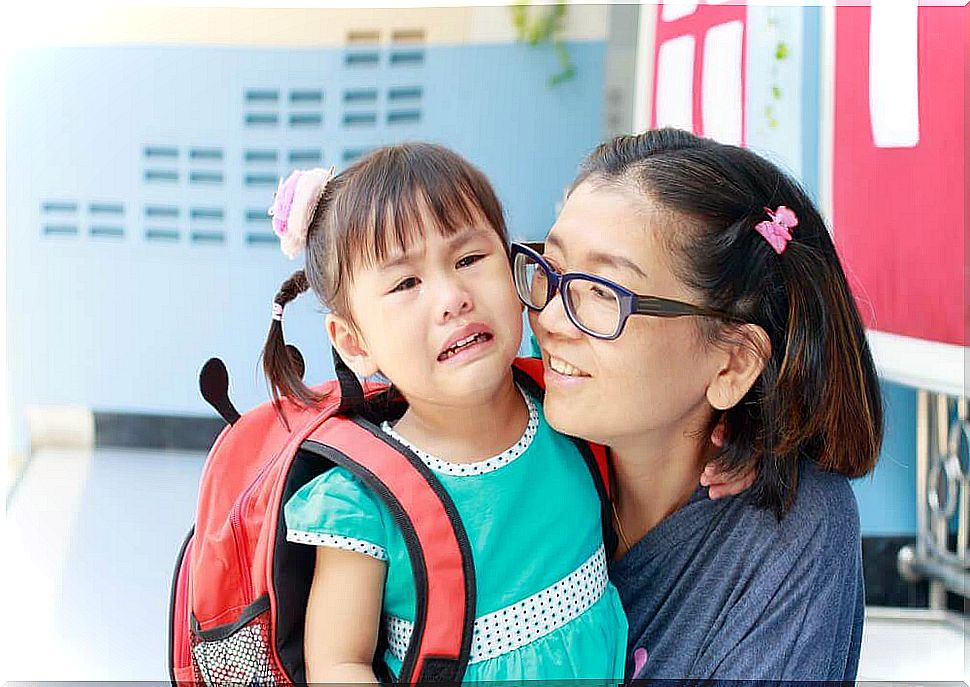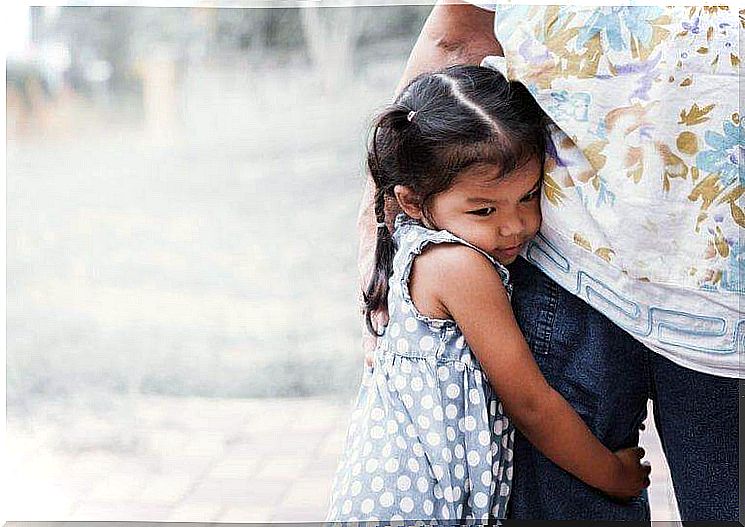First Start To School: The 7 Mistakes Of Parents
Parents must facilitate the transition from home to school. But sometimes they make mistakes and unknowingly complicate the child’s adjustment.

When our children cease to be babies and become children about to take their first steps in school, parents, however keen to facilitate this transition, tend to make a lot of mistakes.
After three, four or five years of caring for your child all the time, it’s normal that it’s hard to leave it in the hands of people we don’t know, their teachers. Parents are then generally worried.
The first mission of parents when it comes to schooling is to find the best school for their child. Their second mission is to help their child adapt easily and as quickly as possible to change.
Separation is just as difficult for parents as it is for children. Nevertheless, it is the adults who must help the child to adapt to this new stage.
The problem is that parents often let themselves be guided by their emotions and make mistakes that make it difficult for their children to start school.
Discover here the 7 mistakes frequently made by parents during the first school year. Pay attention to these mistakes, because these are situations that you can perfectly avoid.
1. Failing to prepare the child for his first return to school

Not preparing your child is arguably the biggest mistake parents make. To avoid creating a school phobia, children should know in advance what to expect. They must therefore be prepared.
So, first of all, you have to discuss it with them well before the start of the school year in order to prepare them little by little.
Then, to facilitate adaptation, it is advisable to involve the child in the preparations for his return to school. Buying school supplies, books and notebooks can be a very stimulating activity for the child.
For some children, discussions about school are enough for the child to quietly leave his parents on the first day of school.
2. Cry in front of the child
Let’s face it: it’s hard to see a child cry, sad, or scared because they’re in a new place and don’t want to stay there. Of course, that makes parents want to cry too. But keep in mind that you are the role model for your children: you must also teach them to manage their emotions.
Losing control is another mistake made by parents. Your child is already worried… If he also sees his parents crying, this will further complicate the situation.
If you feel like crying, do it after you leave your child. The first separation is a very strong emotion that lasts a few days, but little by little your child will be less and less anxious about going to school.
3. Turn around if you hear your child cry
If you’ve already said goodbye to your child but they keep calling you, don’t look back. School staff know how to deal with these kinds of situations and will help your child calm down.
Most children usually calm down within a few minutes of their parents leaving. They begin to interact with their environment.
In the event that a child is unable to console themselves, school staff will likely contact the parents to pick up the child. But this is an exceptional case. As commented just before, teachers know how to console crying children.
4. Take a walk near the school
Avoid walking near the school. This is a monumental mistake. Your child is fine, but if he sees you, he will want to join you.
It is not good for the child to relive a second separation. This will only remind him of what he felt the first time around and the adaptation will be even more difficult.
Wait until the end of the school day to satisfy your curiosity and find out how it went by talking directly to your child.
5. Leave without saying goodbye
The goodbye is the crucial moment of the first return of the children. Children put on a sad face and ask their parents to stay, usually crying very loudly.
However, going “quietly” is not the solution. It can even fuel a very negative feeling of abandonment for the child.
The ideal is to say goodbye quickly with a kiss, a tender word and letting your child know that you will pick them up later and that you hope they have a good day.
6. Extend the goodbye
Of course, we should not leave discreetly, but we should not prolong the goodbye.
This moment must be short. If you stay too long, the child will think you are going to stay with him.
Of course, don’t promise to stay with him.
7. Scold the child for crying and compare him to other children

It is quite normal for a child to cry when they first come back to school. Some children adapt quickly, others less. It even happens sometimes that a child adapts very well from the first day and that after the fifth day he feels the lack of his parents.
Comparing your child to other children does no good and will not make him or her adjust faster. Be patient and don’t despair. Kiss your child.









